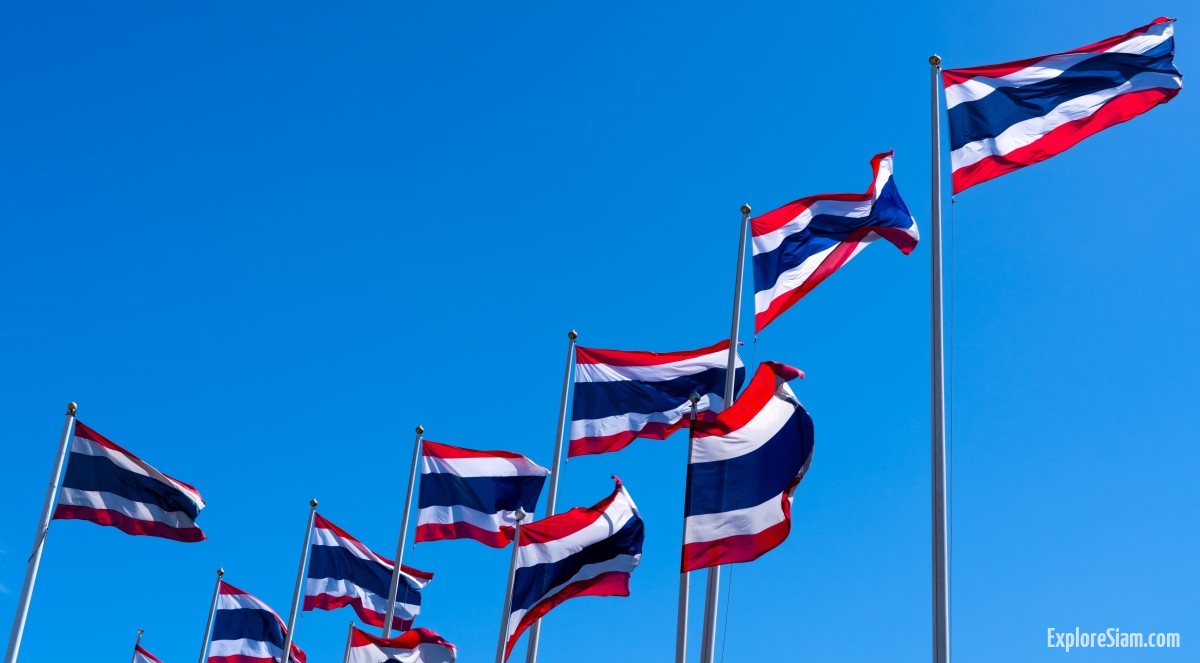Understanding the Thai Anthem Tradition
Thailand is a country steeped in tradition, where customs and cultural practices play a significant role in everyday life. Among these traditions, one that stands out is the daily playing of the national anthem. For many visitors, encountering this practice for the first time can be surprising and a bit puzzling. However, understanding the significance of the Thai national anthem and knowing how to respond appropriately is crucial for showing respect and appreciation for Thai culture.
The Thai national anthem, or “Phleng Chat,” is a symbol of national pride and unity. Composed in 1932 following the transition from an absolute monarchy to a constitutional monarchy, the anthem reflects the values and spirit of the Thai people. The lyrics emphasize national unity, the shared heritage of the Thai people, and a commitment to freedom and progress. The anthem is a reminder of the country’s independence and the spirit of solidarity among its citizens.
The Daily Ritual: Anthem at 8 AM and 6 PM
One of the unique aspects of Thai culture that tourists should be aware of is the daily playing of the national anthem at precisely 8 AM and 6 PM. This practice is observed nationwide, from bustling urban centers to quiet rural towns. At these times, the anthem is broadcast over loudspeakers in public places, such as parks, markets, and transportation hubs. It is also played on television and radio channels.
When the anthem begins to play, it is customary for everyone to stop what they are doing, stand still, and remain silent until the anthem concludes. People who are sitting are expected to stand up, and those who are walking or exercising pause their activities. This moment of stillness serves as a powerful visual demonstration of national unity and respect.
For tourists, participating in this practice is recommended. Even if you do not understand the lyrics or feel a personal connection to the anthem, standing still and showing respect is a small gesture that goes a long way in demonstrating cultural sensitivity. The practice is not merely about following a local rule; it is an act of respect towards the Thai people and their traditions.
Lyrics of the Thai National Anthem
To fully appreciate the importance of this ritual, it helps to understand the meaning behind the lyrics of the Thai national anthem. The anthem speaks to the unity and resilience of the Thai people, highlighting their commitment to their country’s independence and progress. Here are the translated lyrics:
“Thailand unites the flesh and blood of Thais,
The land of Thailand belongs to the Thais.
Long has it maintained its sovereignty,
Because the Thais have always been united.
The Thai people are peace-loving,
But they are not cowards at war.
They shall allow no one to rob them of their independence,
Nor shall they suffer tyranny.
All Thais are ready to give up every drop of blood
For the nation’s safety, freedom, and progress. Hooray!”
These words convey a deep sense of patriotism and collective strength, celebrating the Thai spirit of resilience and unity. The anthem is more than just a song; it is a declaration of national pride and a commitment to safeguarding the country’s values and sovereignty.
The Anthem in Everyday Life and Events
The Thai national anthem is not only played daily but is also a fixture at many public events and gatherings. Whether at a sports event, a government ceremony, or a cultural festival, the anthem is often performed to mark the beginning of proceedings. This reinforces its role as a symbol of national pride and respect.
At these events, both locals and tourists are expected to stand and show respect during the anthem. This practice underscores the importance of the anthem in Thai society, serving as a reminder of the country’s shared values and unity. For visitors, understanding this context is important as it helps them navigate these situations with grace and respect.
How Tourists Should Respond
When you find yourself in Thailand and hear the national anthem being played, the recommended course of action is straightforward: stop what you are doing, stand still, and remain silent until the anthem finishes. This is a simple yet meaningful way to show respect for Thai customs and culture. Observing the behavior of those around you can also provide guidance. If you see everyone stopping and standing, follow suit.
If you are sitting down when the anthem starts, stand up to show your respect. There is no need for any additional gestures; simply standing quietly is enough. The anthem usually lasts less than a minute, so this pause is brief. By participating in this practice, you are acknowledging the importance of the anthem to the Thai people and showing that you respect their traditions.
Special Circumstances and Considerations
There are times when stopping for the anthem may not be feasible, such as when you are driving or in a situation where stopping could pose a safety risk. In these cases, it is understood that safety comes first. However, showing a respectful demeanor, such as reducing your volume or lowering your gaze, can still convey your respect.
Additionally, there may be situations where someone is physically unable to stand due to a disability or health condition. In such cases, maintaining a respectful posture and a quiet demeanor is acceptable. The spirit of the tradition is more about showing respect and less about strict adherence to the physical act of standing.
The Broader Cultural Context of the Thai Anthem
To fully appreciate the significance of the national anthem in Thailand, it is helpful to understand its role within the broader cultural context. Thailand is a country that values respect for authority, national symbols, and traditions. The national anthem is one of many ways these values are expressed. The anthem serves as a daily affirmation of national unity and pride, reminding both citizens and visitors of the shared heritage and values that bind the country together.
In this context, the practice of stopping for the anthem is not just a ritual but a reflection of the Thai way of life, where respect and harmony are deeply embedded in the culture. For tourists, understanding and participating in this practice can provide a deeper connection to the country and its people, enhancing their travel experience.
Embracing Cultural Practices as a Tourist
As a visitor to Thailand, taking the time to learn about and respect local customs, such as stopping for the national anthem, can significantly enrich your experience. It shows that you are not just a passive observer but an engaged participant who values the culture and traditions of the places you visit. This approach fosters positive interactions with locals and demonstrates a willingness to engage with the culture on a deeper level.
Moreover, by participating in these practices, you contribute to a positive image of tourists and help build bridges of understanding between different cultures. This small act of respect can have a lasting impact, leaving a positive impression and fostering goodwill.
Respecting the Thai Anthem Tradition
Stopping for the Thai national anthem is a meaningful tradition that reflects the values of respect, unity, and patriotism. For tourists, understanding this practice and participating in it respectfully is a simple yet powerful way to show appreciation for Thai culture. By stopping and standing for the anthem, visitors not only demonstrate respect for the local customs but also engage in a cultural exchange that enriches their travel experience.
By embracing this practice, tourists can connect more deeply with the local community and gain a better understanding of the cultural fabric of Thailand. In doing so, they honor the spirit of Thai hospitality and contribute to a more harmonious and respectful global community.





